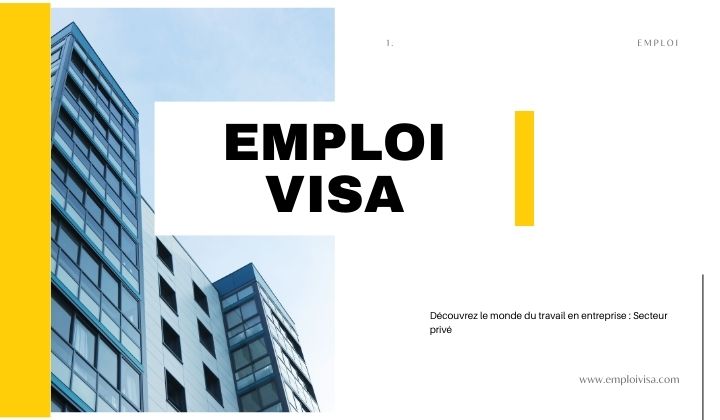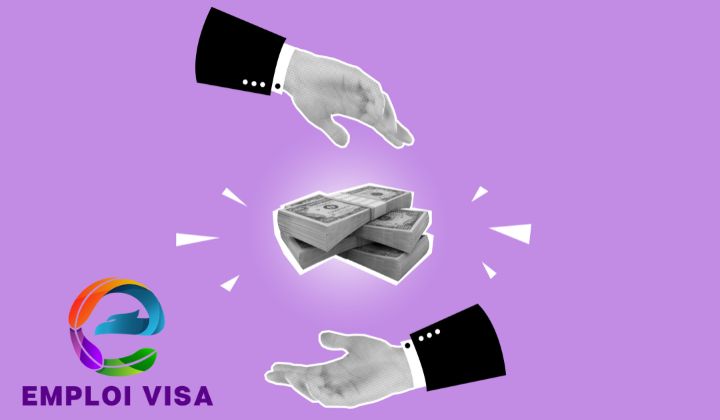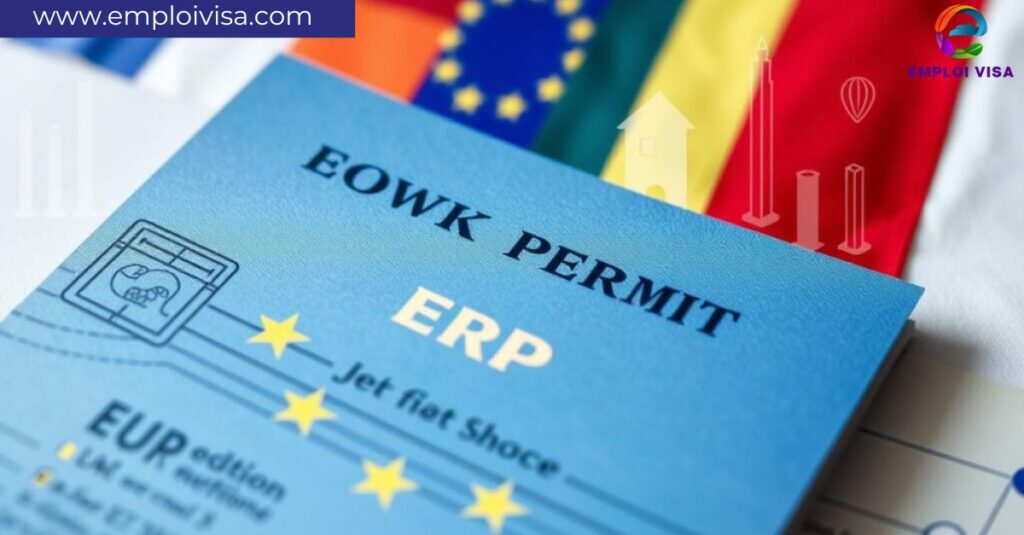
Are you a skilled professional eyeing a job in the European Union (EU)? You have two main choices: visa sponsorship and the EU Blue Card. Each offers unique benefits. Knowing the differences can guide you to the right path for your career and lifestyle.
In this article, we’ll explore both immigration options in detail. We’ll look at who can apply, the salary needed, and the pros and cons of each. By the end, you’ll know which path – visa sponsorship or the EU Blue Card – suits your dreams of working and living in Europe.
Key Takeaways
- Visa sponsorship and the EU Blue Card are the two main work immigration options for skilled professionals in the European Union.
- Each pathway has distinct eligibility criteria, salary requirements, and advantages that must be carefully considered.
- Understanding the nuances of these programs can help you make an informed decision about the best fit for your career and lifestyle goals.
- Processing times, application procedures, and success rates also vary between visa sponsorship and the EU Blue Card.
- Evaluating all these factors can ensure you choose the immigration option that maximizes your chances of securing employment and residing in the EU.
Understanding Work Immigration Options in the European Union
Exploring EU immigration policies can be tough, especially for work options. If you’re a skilled worker or an employer wanting to grow, knowing the different paths is key.
Key Differences Between Immigration Pathways
The EU has several work immigration options. Each has its own rules, benefits, and limits. The main choices are visa sponsorship and the EU Blue Card for skilled workers.
Overview of European Labor Market Requirements
Employers in the EU look for skilled workers. The needs vary by country, focusing on certain skills or education. Knowing the local job market is vital for EU work immigration.
Current Immigration Trends in the EU
Recently, the EU has welcomed many skilled workers. But, the COVID-19 pandemic has changed migration and labor market needs.
| EU Immigration Trend | 2019 | 2020 | 2021 |
|---|---|---|---|
| Residence Permits Issued | 3.2 million | 2.5 million | 2.8 million |
| Percentage of Skilled Workers | 45% | 40% | 42% |
As the EU changes, it’s important to understand its work immigration and labor market needs. This knowledge helps individuals and employers make the most of EU opportunities.
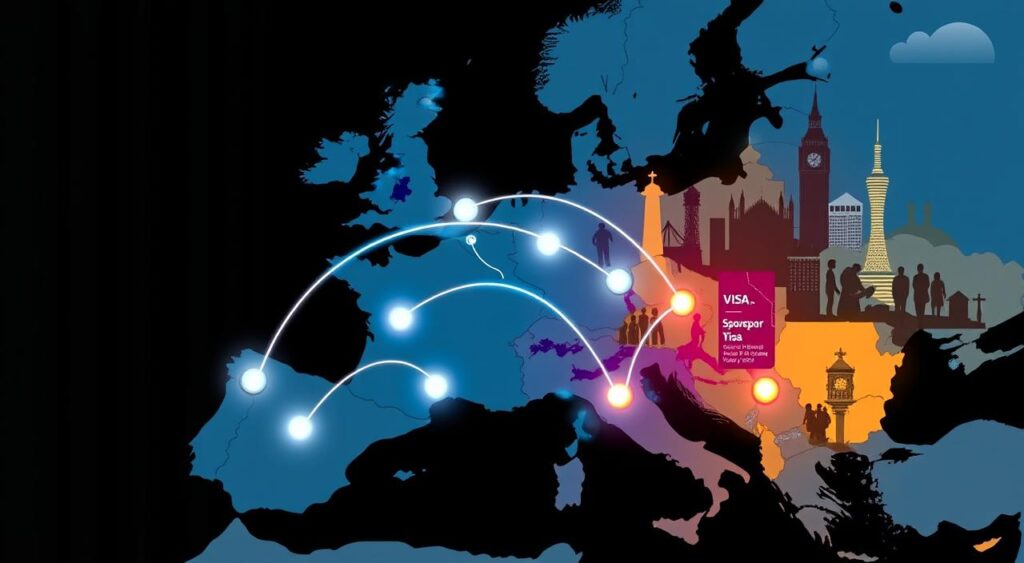
What is Visa Sponsorship and How Does it Work?
The employer-sponsored visas process, also known as visa sponsorship, is key for those wanting to work in the European Union. It lets employers bring in foreign workers for certain jobs. This makes it easier for them to get immigration process and work permits.
The steps to follow are:
- The employer finds a job they can’t fill with a local or EU-based candidate.
- The employer sponsors the foreign worker by starting the visa application. They share details about the job and the candidate’s skills.
- The candidate sends in the needed documents, like education proof, work history, and a valid passport.
- The immigration authorities check the application. They look at the job need, the candidate’s skills, and the employer’s ability to sponsor.
- If it’s okay, the candidate gets a visa. This lets them live and work in the EU for a set time. They might also be able to extend it or apply for permanent residency.
Visa sponsorship has benefits for both employers and workers. Employers get to hire from around the world. Workers can take job offers in the EU and start new careers. But, the process can be complex and take a lot of time. It needs good teamwork between the employer and the candidate.
“Visa sponsorship is a valuable tool for employers and workers alike, enabling the global exchange of talent and fostering a diverse and dynamic workforce in the European Union.”
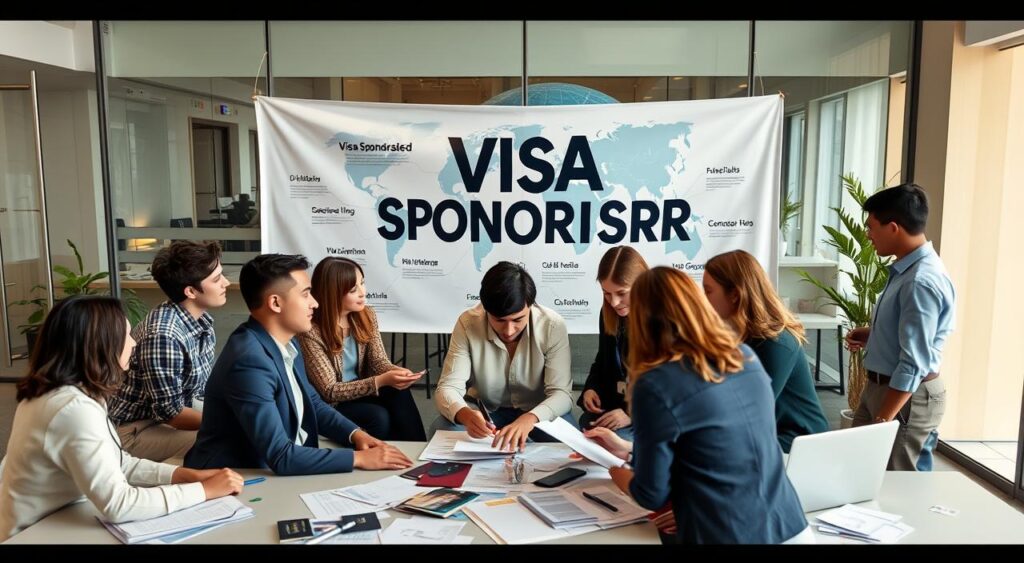
The EU Blue Card System Explained
The European Union’s Blue Card system is a way for highly skilled non-EU nationals to work and live in the EU. It gives highly skilled workers an EU-wide work permit. They also get better mobility rights across the union.
Eligibility Requirements for Blue Card
To get the EU Blue Card, you need to meet certain criteria. These include:
- Having a valid professional qualification or university degree
- Finding a job in an EU country with a salary that meets the local standard
- Showing proof of health insurance
Salary Thresholds and Qualifications
The salary needed for the EU Blue Card varies by country. It’s usually between 1.0 and 1.6 times the average salary. You also need a recognized professional qualification or university degree.
Benefits and Limitations
The EU Blue Card has many benefits. It lets you work and live in different EU countries. You can also get your family to join you faster. Plus, it might lead to permanent residence.
But, there are some downsides. You must earn a certain salary. And, your foreign qualifications must be recognized.
“The EU Blue Card is a game-changer for highly skilled non-EU nationals, providing access to the world’s largest integrated labor market and a path to long-term settlement within the European Union.”
Visa Sponsorship vs. EU Blue Card: Which Option is Best for You?
Choosing between visa sponsorship and the EU Blue Card is a big decision. It affects your career, where you can live long-term, and if you can bring your family. Knowing the differences between these options is key to picking the right one for you.
The EU Blue Card is great for those wanting to live in the EU for a long time. It lets you settle down with your family and grow in your career. Visa sponsorship might get you into the EU faster, but it might not offer the same stability or family benefits.
If you’re focused on your career, the EU Blue Card is a good choice. It’s made for skilled workers, offering a quick and easy process. It also means you could earn more and find better job opportunities in the EU.
Choosing between visa sponsorship and the EU Blue Card depends on what you need. Think about your goals for living in the EU, your family, and your career. Weighing the good and bad of each option will help you make the best choice for you.
| Visa Sponsorship | EU Blue Card |
|---|---|
| Potentially faster initial entry | Direct route to permanent residency |
| May not provide the same level of family reunification opportunities | Allows for family reunification and settlement |
| Focuses on short-term employment | Designed for highly skilled professionals and career advancement |
When deciding, think about your career goals, long-term residency plans, family reunification needs, and professional development dreams. By looking at what each option offers, you can choose the best path for success in the EU.
Processing Times and Application Procedures
Immigration options in the European Union vary a lot. The process and time it takes can differ a lot between visa sponsorship and the EU Blue Card. Knowing these differences is key to planning your move and setting the right expectations.
Document Requirements
Getting a visa through sponsorship needs a lot of documents. You’ll need employment contracts, proof of your qualifications, and financial statements. The EU Blue Card, however, is simpler. It focuses on your education and if you meet the salary requirement.
Cost Comparison
The cost of applying is also important. Visa sponsorship can be expensive, with fees and legal costs. The EU Blue Card is cheaper and easier to apply for, making it more appealing to some.
Success Rates and Approval Chances
Success rates differ between visa sponsorship and the EU Blue Card. Sponsorship approval depends on the employer, job market, and your skills. The EU Blue Card has clear rules, which might lead to more approvals for those who qualify.
FAQ
What is the difference between visa sponsorship and the EU Blue Card?
Visa sponsorship lets companies hire foreign workers for specific jobs. The EU Blue Card is a work and residence permit for skilled non-EU workers across Europe.
What are the eligibility requirements for the EU Blue Card?
To get the EU Blue Card, you need a job offer, meet salary rules, and have the right qualifications or degree.
What are the benefits of the EU Blue Card?
The EU Blue Card lets you work and live in the European Union. It also makes it easier to bring your family and could lead to permanent residency.
How do the processing times and application procedures differ between visa sponsorship and the EU Blue Card?
Visa sponsorship and the EU Blue Card have different application processes. The EU Blue Card is usually faster. Both have their own rules for documents and fees.
Which option, visa sponsorship or the EU Blue Card, is better suited for my career goals?
Choosing between visa sponsorship and the EU Blue Card depends on your career and personal plans. Think about your long-term goals, career, and family to decide.
How do the salary thresholds and qualifications compare between the two immigration pathways?
The EU Blue Card requires higher salaries than visa sponsorship. It also needs a university degree or professional qualifications. Visa sponsorship might be more flexible in education and skills.
What are the current immigration trends in the European Union?
The European Union wants to attract skilled workers to meet labor needs. Both visa sponsorship and the EU Blue Card are becoming more popular as the EU competes for global talent.


